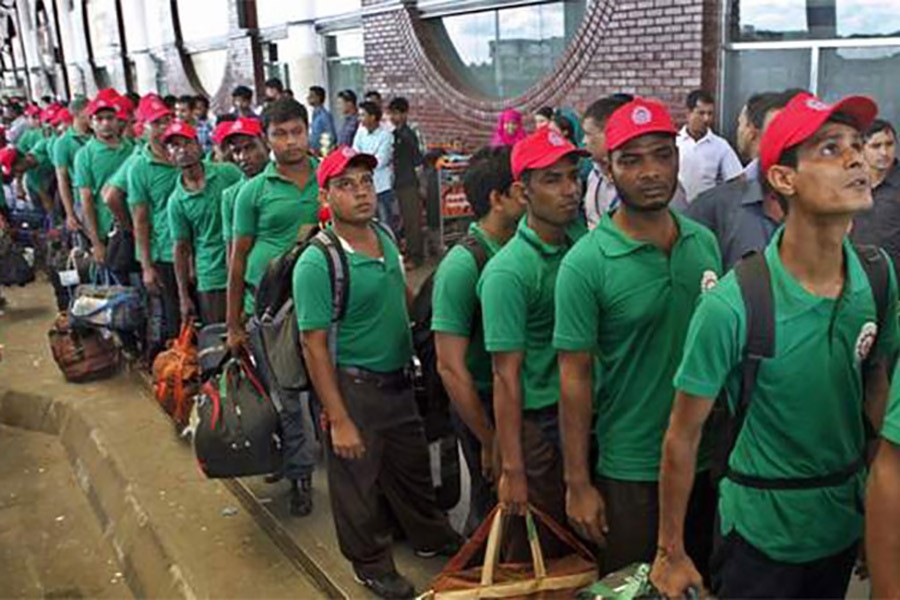The number of Bangladeshi workers going abroad with jobs dropped by about 25 per cent in the first half (H1) of the current calendar year (2018) compared to that in the corresponding period of the previous year, official statistics has revealed.
During the January-June period of 2018, a total of 392,250 local workers went to different countries across the world with jobs.
In H1 of 2017, the total number of the country's outbound workers was 520,490, according to the Bureau of Manpower Employment and Training (BMET) data.
The number dropped this year, as the demand for foreign workers has declined significantly in the Kingdom of Saudi Arabia (KSA), the largest job market for Bangladeshis last year.
It has created a negative impact on the country's overseas job scenario, sector insiders said.
More than 550,000 Bangladeshis went to the Arab country with jobs in 2017, as per the BMET data.
But KSA hired only 144,568 workers from the country in the first six months of the current calendar year.
Saudi Arabia has recently banned 12 categories of jobs for the foreign workers. It has curbed the recruitment of Bangladeshi workers there, affecting the country's overall foreign employment.
However, unlike KSA, other Middle-East job markets remained stable for the Bangladeshi workers, according to the BMET.
In the first six months of the current year, Qatar recruited 40,182 workers from Bangladesh, Oman 37,565 workers, and Kuwait 19,416 workers.
Meanwhile, the leaders of the Bangladesh Association of International Recruiting Agencies (BAIRA) and the officials of the ministry concerned said such a declining trend in sending workers to KSA will not affect the target of overseas jobs this year.
The Ministry of Expatriates' Welfare and Overseas Employment has fixed a goal of sending a total of 1.2 million workers abroad in 2018.
BAIRA President Benjir Ahmed said the trend will not continue for a long time.
At the end of the year, the number of foreign employment will increase notably.
They are trying to tap new job opportunities in traditional and non-traditional markets, he added.
Replying to a query, the BAIRA chief also said the recent move of the Malaysian authorities concerned will not affect the flow of Bangladeshi workers to that country.
"Presently the recruitment of Bangladeshi workers by the Malaysian employers is normal," he added.
Kuala Lumpur suspended manpower recruitment from Bangladesh through 'G2G Plus' system in the last week of June.
The new government of Malaysia thinks that some unethical practices exist in the migration process.
The suspension will continue until it completes investigation into the allegations, reported Malaysian media.
Syed Saiful Haque, chairman of WARBE Development Foundation, said the migrant workers face different types of exploitations abroad.
So the ministry concerned should focus on quality migration, not on the number.
"Quality migration is vital to develop labour market," he added.
Although the number of outbound jobs has dropped, the country's remittance earning increased more than 17 per cent in the just-concluded fiscal year (FY) 2017-18.
The remittance inflow increased following higher fuel oil prices in the global market, sector insiders said.
The migrant workers remitted US$ 14.98 billion in FY 18. They sent $ 12.77 billion in FY 17, according to the central bank data.
More than 11 million Bangladeshis had gone abroad with jobs since 1976, BMET data showed.


